U.S., Iran share air base
In 1979, Islamists took over Iran and also took 52 American diplomats and citizens hostage for 444 days. Since then, the United States and Iran have had no official diplomatic ties. Yet the two nations now have military ties—in Iraq.
A June 22 report by Bloomberg View, based on revelations from two senior officials in the Obama administration, showed that the U.S. and Iran now share the Taqqadum military base 70 miles west of Baghdad, between the Islamic State-controlled cities of Fallujah and Ramadi. The U.S. first used this base when the Iraq War began in 2003.
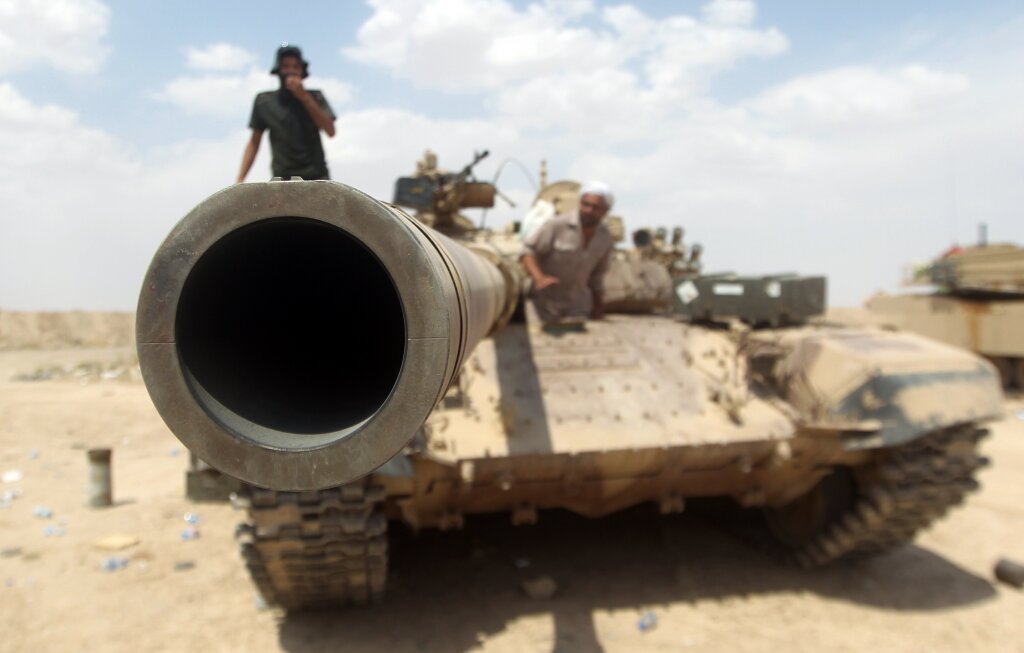
The State Department has designated Iran the chief state sponsor of terrorism since 1984; this assessment was confirmed in its “Country Reports on Terrorism 2014.” In a press briefing before the release of the reports on June 19, State Department coordinator for counterterrorism Tina Kaidanow said that “we continue to be very, very concerned about irgc [Islamic Revolutionary Guard Corps] activity as well as proxies that act on behalf of Iran.”
Some of those proxies the State Department worries about are based at Taqqadum. While their main goal for now is to fight the Islamic State, these Iran-sponsored militias have fought against U.S. soldiers before—in Iraq. Senior administration officials told Bloomberg View that hundreds of them constantly fly in and out of the base.
One militant group at Taqqadum is Iraqi Hezbollah. Its leader, Abu Mahdi al-Muhandis, was sanctioned by the Treasury Department in 2009 for destabilizing Iraq. Another group there is the League of the Righteous. In 2007, members of this irgc affiliate disguised themselves as U.S. troops, abducted five American soldiers from a military compound in Karbala, Iraq, and killed them. The League of the Righteous remains unrepentant for this; in fact, it brags about it.
Arkansas Sen. Tom Cotton, who fought in Iraq, noted that the most advanced and most lethal weapons used against American troops in Iraq were supplied by Iran to some of the exact same militias that are sharing Taqqadum with Americans.
According to a senior administration official, U.S. military briefings on operations often include information on commanders from some of these Iranian proxies. Intelligence reports have revealed that these commanders also spy on U.S. operations from that base.
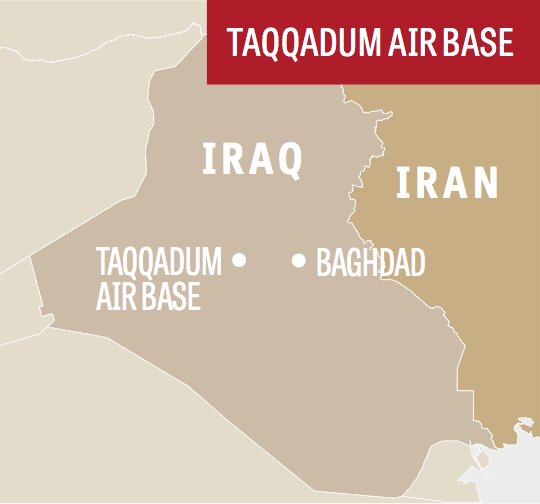
Bloomberg reported that even some U.S. military hardware has been obtained by Iran’s proxies at Taqqadum.
In 2013, the Washington Institute for Near East Policy recognized groups like Iraqi Hezbollah and the League of the Righteous for deploying militants to aid Syrian President Bashar Assad in fighting rebels in Syria. This support, sanctioned by Iran, is what State Department terrorism reports say is the main prolonger of the Syrian civil war and has worsened the nation’s humanitarian crisis.
One of the senior administration officials who spoke to Bloomberg said, “Even if these guys don’t attack us … Iran is ushering in a new Hezbollah era in Iraq, and we will have aided and abetted it.”
America’s involvement in the Mideast has helped Iran’s rise to regional hegemony at a terrible financial and human cost. From the weakening of Iraq in the first Gulf War to the ouster of Saddam Hussein in the second to leaving a weak government in Afghanistan, the United States has helped Iran to seize kingship of the Middle East.
Russia’s slow advance into Georgian territory
Georgia is calling on the international community to “properly respond” to Russia’s ongoing creeping occupation of Georgian territory.
On July 10, Russian forces placed new “border” markers in several villages near Georgia’s central highway. This action, according to Georgian officials, brought a new strip of Georgian territory more than a mile wide under Russian control. The newly occupied territory includes part of a major BP-operated oil pipeline.
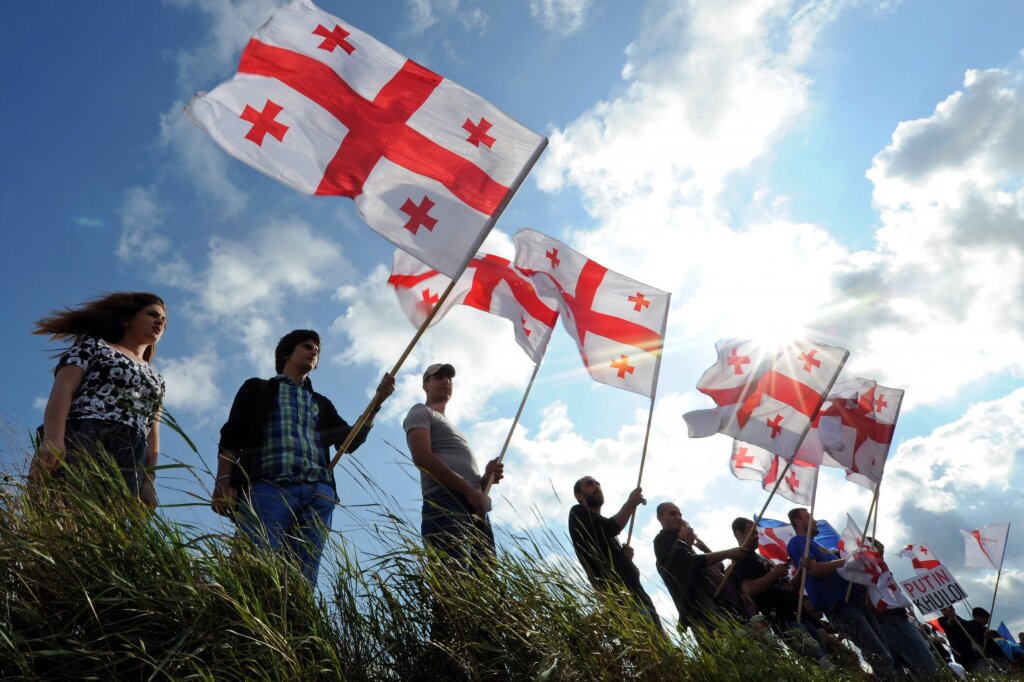
“We’ve lost most of our fields,” said a farmer from Tsitelubani, one of the communities affected by the newly declared border. “The Russians said we are no longer allowed there.”
The move is the latest in a series of Russian operations, which analysts say are part of Moscow’s creeping annexation of South Ossetia and Abkhazia—both breakaway Georgian territories. Russia has occupied the two territories since 2008 after a brief war with Georgia.
Georgia’s Foreign Ministry urged the international community to stand up against these Russian actions that “violate fundamental principles of the international law.”
Russia’s dangerous new gas pipeline to Germany
Russian state-owned gas giant Gazprom signed a deal on June 18 to double the capacity of the Nord Stream gas pipeline that delivers Russian gas directly to Germany.
Analysts are wondering why Germany keeps working with Moscow when it is supposedly shunning Russia for its invasion of Ukraine. When asked how he convinced Germany’s E.ON to do business with Gazprom, chief executive Alexei Miller said, “[T]here was no politics at all.”
But make no mistake: This pipeline deal has geopolitics all over it—geopolitics that will give more dominance to Russia and Germany.
Europe increasingly depends on gas supplies from Russia. If this next phase of the Nord Stream pipeline goes through (and it could take several years), Russia will be able to turn off gas to countries like Ukraine, Poland, Romania, Belarus, Hungary and Slovakia while still sending more-powerful Western nations all the gas they need.

Since 1991, Russia has turned off the gas to Eastern European nations dozens of times for political and economic reasons, sometimes during the dead of winter. Eastern European nations recognize this threat and are sure to oppose the new pipeline. But Germany and Russia pushed it through anyway.
Why would Germany agree to construct something that exponentially multiplies Russia’s capacity to invade more Eastern European nations? Because the Nord Stream pipeline radically increases German power too.
With Russia’s help, Germany is becoming an energy hub of Europe. Increasing quantities of Russian gas are flowing through Germany before being distributed to countries like the Netherlands, Belgium, France and Britain.
Germany and Russia actually have a history of secret cooperation even when headlines appear to indicate otherwise. The fact that Germany and Russia are pushing through such a deal even as the West and Russia struggle over Ukraine speaks volumes.
Trumpet editor in chief Gerald Flurry warned that a German-Russian pact had already been made back in October 2008. “The presence of a deal between these two nations is not a sign of peace. Like the Molotov-Ribbentrop pact, and so many others before it, it is a sign of exactly the opposite. Both of these nations are looking to secure their shared border—so they can pursue their imperialistic aims elsewhere! It is a precursor to war!”
Later in the article he asked: “Will a crisis occur over Ukraine? That area is the breadbasket of Russia, and surely it is willing to wage war over that as well.”
Last March, the world was stunned as Russia annexed Ukraine’s Crimean Peninsula. Yet it shouldn’t have been. Russia already has great power over Ukraine and other Eastern European nations, and if the proposed expansion takes place, all of Ukraine and other Eastern European nations could be doomed to return to Russian domination.
Germany may support Ukraine with words, but watch its actions. Watch as Russia rebuilds its Eastern European empire. For a powerful preview of the near future, read Mr. Flurry’s 2008 article “Russia’s Attack Signals Dangerous New Era.”
No lifeboats left for next economic crisis
The Bank for International Settlements (bis) warned in a June 28 report that when the next economic crisis strikes, central banks won’t be able to save the day again. “[I]n some jurisdictions, monetary policy is already testing its outer limits, to the point of stretching the boundaries of the unthinkable,” wrote the authors (emphasis added throughout). “[T]he policy mix has relied … on the very debt-fueled growth model that lay at the root of the crisis.”
The report argues that the Federal Reserve, the European Central Bank and other central banks have run out of options to deal with economic catastrophe.
Yet the report says more clever scheming may yet solve the crisis: “Nothing is inevitable about this. The problems we face are man-made and can be solved by the wit of man.”
Others are not so hopeful. “I expect that within the next year or two we will see some major, major problems in the world financial markets,” investor Jim Rogers warned days before the bis report. “I suspect … it will cause central banks to panic. … By 2016, I am sure we will all be moaning … because there is going to come a time when there is not much central banks can do, when they have lost all credibility, when governments have lost all credibility.”
No major country has less debt today than it had in 2008. The Federal Reserve’s balance sheet has more than quintupled. Even countries talking about austerity all have higher, and still rising, debt loads.
Greece’s debt is potentially dragging it out of the European Union. The U.S. territory of Puerto Rico declared in June that it was bankrupt. In July, the Congressional Budget Office reported that U.S. federal debt has doubled in seven years and that interest payments could drown the economy within a decade.
“[This is] going to affect the lives of every single individual in the U.S. and many in the world,” Gerald Flurry warned on June 18. “We have to deal with this quickly, but at this time that debt just keeps soaring. … [W]e have also been telling you close to 50 years that the entire financial structure and system of the Western world was going to collapse, and … that’s prophesied in your Bible.” Watch his video on this subject, “Daniel and the Hidden Gospel.”
Pope calls for new world government
Pope Francis published his second encyclical on May 24, Laudato Si (Be Praised). The document pushed for greater Catholic control over the global economy, global politics and the globe in general.
Francis made clear that this encyclical is not just for Catholics, but for “all people.” The Guardian called it “the most astonishing and perhaps the most ambitious papal document of the past 100 years” (June 19).
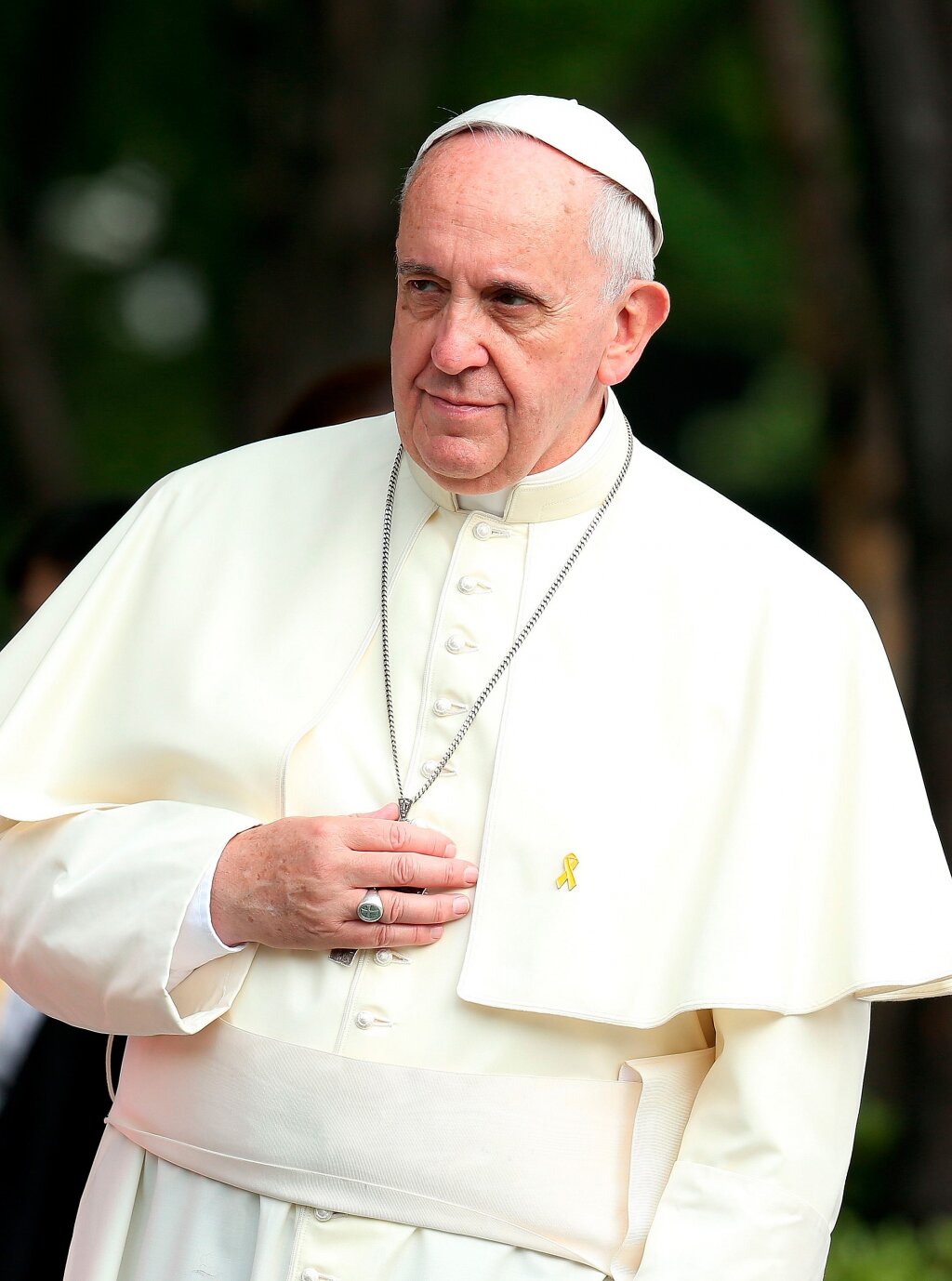
A portion of it deals with global warming, but much concerns mankind’s general “self-destructive” behavior. Francis blames both world poverty and the environmental crisis that he foresees on “the current global system, where priority tends to be given to speculation and the pursuit of financial gain.”
That the global system is flawed is not controversial, but Francis’s solution is: Hand control over to a “world political authority.” Laudato Si calls for “global regulatory norms” and “enforceable international agreements.” He wants to empower international institutions and create new international regulations with teeth. What Laudato Si leaves unsaid is what world religious authority should exert its influence over this world political authority, but the pope likely has an idea regarding that.
India and Pakistan join Asian security bloc
India and Pakistan joined the Shanghai Cooperation Organization on July 10. They are the first new countries to become full members since the bloc was set up in 2001.
The sco, a Eurasian political, economic and military group, is dominated by Russia and China and includes Kazakhstan, Kyrgyzstan, Tajikistan and Uzbekistan. The admission of India and Pakistan extends the sco’s geographic reach and its represented population—now more than 3 billion.
Since the sco’s founding, member nations have signed more than 100 cooperation agreements and have expanded collaboration in economics, politics, security, culture and other areas. With the admission of India and Pakistan, the cooperation will lurch ahead with renewed vigor, largely because India is a rapidly growing economy with an enormous thirst for energy exports from Russia and Central Asian nations.
India’s sco membership will likely diminish rivalries between China and India, thereby decreasing India’s commitment to the U.S. as an ally. Similarly, a warmer relationship between Pakistan and the sco will boost Islamabad’s bargaining power with Washington, thereby reducing the Washington’s power in the relationship.
Russia and China are the regional behemoths driving the rise of the Eastern nations, and the sco is a key vehicle they are using to accomplish that.
NATO’s weakness will make Europe stronger
Most of Western Europe does not want to defend a nato ally against Russian attack, a Pew poll published on June 8 showed. The survey asked, “If Russia got into a serious military conflict with one of its neighboring countries that is our nato ally, do you think our country should or should not use military force to defend that country?” Collective defense is nato’s core. But 51 percent of Italians, 53 percent of French and 58 percent of Germans said no to defending an ally.
The poll also showed that Poland’s trust in the United States for defense has collapsed. Of all the nato members polled, Poland is most under threat. In every other nation, more than 65 percent of those surveyed said they believed America would defend a nato ally. In Poland, only 49 percent did.
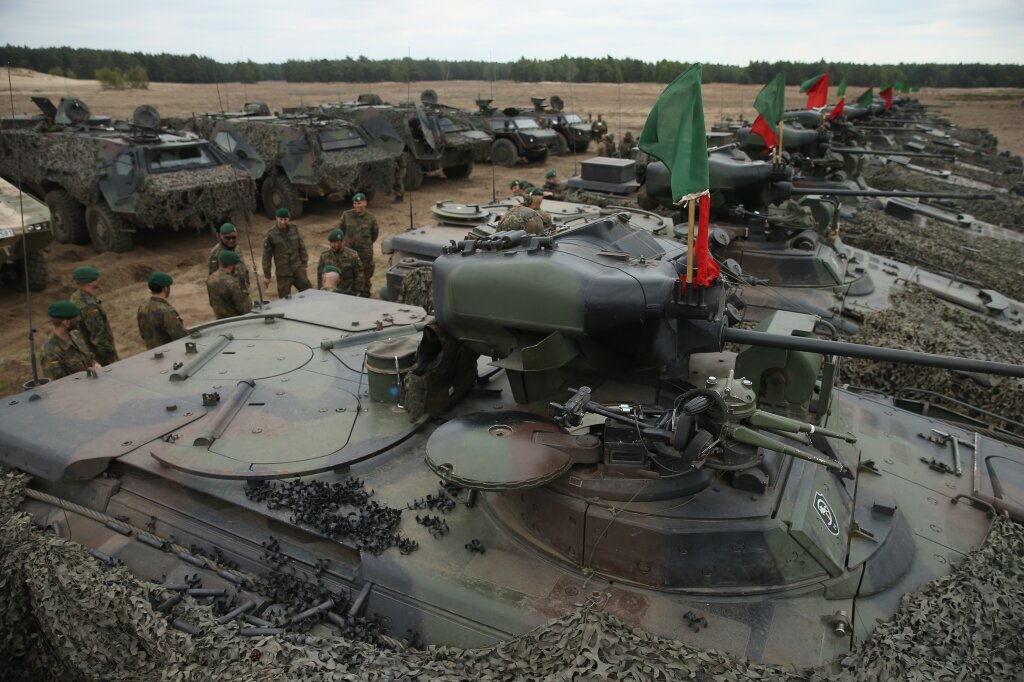
Poland has seen America default on its promise to defend neighboring Ukraine, so it is pursuing other options, such as nato’s new Very High Readiness Joint Task Force (vjtf), deployed for the first time in Poland in June. The vjtf is built around the German-Dutch Army Corp, making for a historical oddity: A German-led rapid deployment force being invited into Poland.
This potent symbol reveals the situation in Eastern Europe. Fear of Russia is growing, trust in America and nato is faltering, and reliance on Germany is increasing.
One of the Netherlands’ three brigades is already officially part of the German Army, and another is joining. Poland has swapped battalions with Germany and has its navy in close cooperation with the Deutsche Marine.
Berlin must balance its Russian interests against its Central European interests, but one outcome is sure: More and more of Europe will weld itself to Germany’s leadership.
